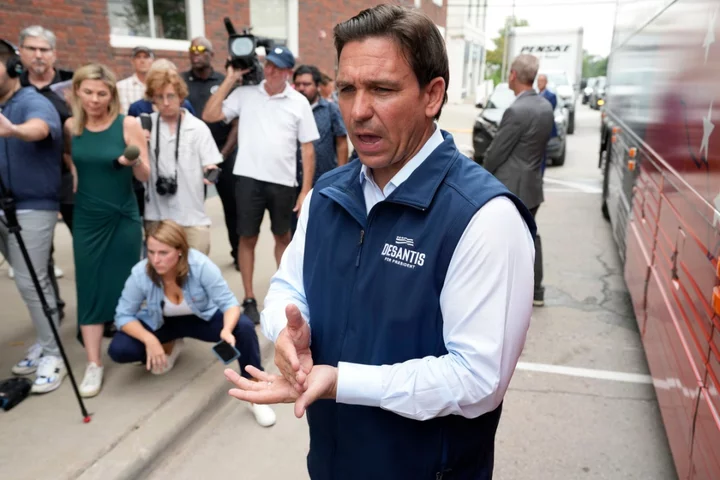
DeSantis car crash revealed misuse of government vehicles for 2024 campaign, report claims
The Tennesse car crash involving four vehicles in Florida Governor Ron DeSantis’s motorcade has revealed that his campaign has misused government vehicles by using cars owned by the state of Florida in his presidential run, a report claims. The crash that took place on Tuesday as the campaign team was travelling to fundraisers in three cities in the state shows how the campaign is using state resources, but it remains almost impossible to discover who’s funding it after a new law passed by the Florida legislature to shield Mr DeSantis’s travel records from the public, according to the Orlando Sentinel. The research director for nonprofit government watchdog Integrity Florida, Ben Wilcox, told the paper: “The legislature has enabled him to hide his travel records so we don’t know and have no way to hold him accountable if he is using state resources in his campaign or if that is even the case”. Orlando Democratic state representative Anna Eskamani told the paper that “It’s absurd that he’s using public resources and public infrastructure to campaign. He’s using state resources to boost himself politically”. The crash took place as the campaign was heading to a fundraiser when an accident further ahead caused traffic to slow down. A Tennessee Highway Patrol officer heading the motorcade stopped short, and the cars behind the officer rear-ended each other, according to Chattanooga Police. “If the accident hadn’t been reported, we wouldn’t have known otherwise about the use of state vehicles,” Ms Eskamani added. “It makes you wonder how often state vehicles and public employees are being used at out-of-state campaign events.” One DeSantis staffer was treated on the scene of the crash for minor injuries. There were no further injuries, police said. Florida Department of Law Enforcement (FDLE) agents were also involved in the accident. Police said all the vehicles in the crash were government-owned. FDLE spokeswoman Gretl Plessinger told the paper: “We’ve never answered questions about our protective operations assets (number of agents used, vehicles etc.)” The federal campaign finance report filed on 15 July covering the three months leading up to 30 June doesn’t include any payments to FDLE for travel or security. The report states that $76,256 were spent on private security. The DeSantis campaign has recently been in the news for spending large amounts without much to show for it, and recently laying off 38 people – a third of the campaign staff. Travel and staffing appear to be large expenses for the campaign as Mr DeSantis has been reported to be travelling with a larger group of staffers compared to other candidates. The campaign had raised $20m as of 30 June and they had spent $8.2m – more than a million on payroll and almost as much on travel – $896,000. Mr DeSantis is reported to prefer to fly in private jets provided by a number of top donors, the Sentinel notes. Since the start of his gubernatorial re-election campaign last year, there have been questions about whose private jets he’s using and if they’re reported as in-kind contributions or gifts. “I don’t think we’ve ever had a sitting governor run for [president],” Mr Wilcox told the paper. The director of public access for the Florida Center for Government Accountability, Michael Barfield, told the paper that “at the end of the day, taxpayers don’t know what their money is being spent on”. He added that the group is considering its next legal steps. “We’re questioning the validity of the exemption,” Mr Barfield said. “We don’t think it meets a public purpose, so we will brainstorm about potential legal action.” Ms Eskamani said the legislature could repeal the public records exemption, but that “It would take a political will that doesn’t exist, even for something as nonpartisan as access to travel records”. The Independent has reached out to the DeSantis campaign for comment. Read More A new challenger has emerged to Trump – and his extreme anti-woke message is working DeSantis cornered on his Bud Light boycott after threatening legal action over stock drop Judge refuses to dismiss lawsuit against Disney’s efforts to neutralize governing district takeover Judge refuses to dismiss lawsuit against Disney’s efforts to neutralize governing district takeover DeSantis questioned about his Bud Light boycott after complaining about stock drop Trump calls additional charges in Jack Smith’s superseding indictment ‘harassment’
2023-07-29 23:28
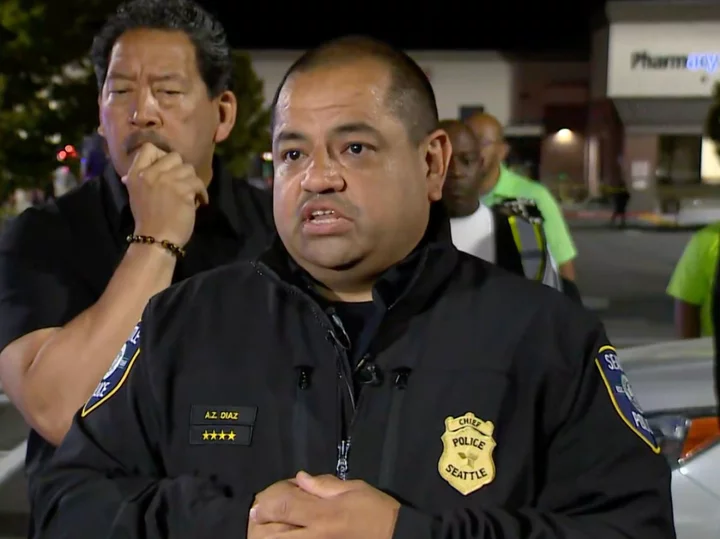
Mass shooting at youth community event in Seattle leaves five injured, two critically
Five people were injured during a Friday mass shooting in Seattle. The violence unfolded during a community event, Seattle Police Department Chief Adrian Diaz said during a press conference. Four of the victims were males and one of them was a female. Authorities said it is unclear at this time whether the shooting was targeted. “We know that there’s dozens and dozens of rounds that were fired,” Mr Diaz said. “We have five victims. Two are in critical condition. Three appear to be stable.” The chief of police said this year the department has recovered the highest number of guns in 15 years. “The gun violence issues that we have in our city, we’ve seen it rise and sometimes slow down at times, but right now we’ve really got to get guns off our streets,” he said. Read More Video captures police confronting white woman moments after she shot Black neighbour in row over children playing
2023-07-29 21:55

Elon Musk’s Twitter bans ad showing Republican interrupting couple in bedroom
An ad launched by Progress Action Fund launched, showing an elderly Republican congressman interrupting a couple in the bedroom, has now been banned on X, formerly known as Twitter. According to the Progress Action Fund, which aims to defeat Republicans in red states, the platform “has censored” its account as well as the ad, called “Keep Republicans Out Of Your Bedroom.” In addition, the platform has “placed a ‘Search Ban’ and a ‘Search Suggestion Ban’ on the account.” As of Wednesday afternoon, the account did not show up on the social media platform, yet the ad could still be seen on X through retweets from other accounts. The Progress Action Fund said it contacted the platform’s legal department and “appealed the decision, which was denied.” Joe Jacobson, Founder and Executive Director of Progress Action Fund, took a stab at X’s owner: “Elon Musk loves free speech, but only when it’s convenient for him and his far-right political agenda.” “Political speech is protected under law and Musk’s competitors clearly agree that our ad should not be censored,” he continued. “When releasing ads in the future, we’ll be taking them to other platforms, which many others are already doing given Elon Musk’s frantic and poor leadership at Twitter.” The Independent has reached out to X for comment. The ad features a scene in which a woman asks a man if he has a condom. He reaches for the condom in a bedside table drawer, and another suit-covered arm appears, reaching for it as well. “Sorry, you can’t use those,” says an older man, clad in a black suit and red tie, while standing beside the bed. When the woman asks who he is, he replies: “I’m your Republican congressman. Now that we’re in charge, we’re banning birth control.” The ad urges voters to “vote no” on 8 August, in reference to State Issue 1, which would require proposed amendments to Ohio’s constitution “receive the approval of at least 60 per cent of eligible voters voting on the proposed amendment,” rather than a simple majority. Since acquiring Twitter, Mr Musk, a self declared “free speech absolutist”, has touted free speech as a pillar of the platform. As part of this shift during the takeover, he reinstated Donald Trump’s account after a two-year ban, which was “due to the risk of further incitement of violence” after the January 6 Capitol riot. He also reinstated at least 11 accounts belonging to prominent far-right and anti-trans influencers. On 23 November, the platform announced it “is no longer enforcing the Covid-19 misleading information policy.” As recently as April, the platform claimed to strive to “promote and protect the public conversation. We believe Twitter users have the right to express their opinions and ideas without fear of censorship.” In May, he wrote: “I am adamant about defending free speech, even if it means losing money.” Read More Democratic PAC unveils ‘steamy and horrifying’ ad with GOP lawmaker interrupting couple in bedroom Elon Musk slammed for pushing anti-vax conspiracy in response to LeBron James’ son Bronny suffering cardiac arrest Elon Musk takes control of @X account from user who had held it for 16 years Elon Musk’s Twitter bans ad showing Republican interrupting couple in bedroom 'X' logo installed atop Twitter building, spurring San Francisco to investigate permit violation EXCLUSIVE: The O.C.’s Ben McKenzie on going down the crypto rabbit hole
2023-07-29 20:27

AOC claps back at Justice Alito for saying Congress can’t have oversight of Supreme Court
New York congresswoman Alexandria Ocasio-Cortez criticised Supreme Court Justice Samuel Alito on Friday, after the high court jurist claimed the US court was above any regulation from Congress. Democrats in the Senate have been pushing for a new law that would require the Supreme Court to adopt a binding ethics code and new enforcement regulations to assure justices stick to it, after a bruising series of ethics scandals on the nation’s top appellate court. “What a surprise, guy who is supposed to enforce checks and balances thinks checks shouldn’t apply to him,” Ms Ocasio-Cortez wrote on social media. “Too bad! Corruption and abuse of power must be stopped, no matter the source. In fact, the court should be *most* subject to scrutiny, bc it is unelected & life appointed.” The pushback was in response to recent comments Mr Alito gave in an interview with The Wall Street Journal, where the right-leaning judge said, “I know this is a controversial view, but I’m willing to say it...No provision in the Constitution gives them the authority to regulate the Supreme Court – period.” “The court’s financial disclosure requirements are a law, passed by Congress; its recusal requirements are a law, passed by Congress; and the body that implements financial disclosure and code of conduct issues is the Judicial Conference, a body created by Congress,” Rhode Island senator Sheldon Whitehouse said earlier this month. “Please let’s not pretend Congress can’t make amendments to laws Congress has passed or oversee agencies Congress has created,” he said. Mr Alito was in the spotlight last month after ProPublica revealed the justice had travelled to a fishing trip in a remote part of Alaska onboard a private jet belonging to billionaire hedge fund manager Paul Singer, a wealthy Republican donor who’s had cases before the Supreme Court. The trip wasn’t disclosed on Mr Alito’s yearly financial forms, a potential violation of federal law, though he disputes he did anything wrong. Earlier this year, another Republican-appointed judge, Clarence Thomas, found himself facing similar allegations of improper conduct. ProPublica detailed longstanding ties between him and Harlan Crow, another conservative-leaning billionaire. Mr Crow took Mr Thomas around the world on lavish vacations, and bought over $133,000 dollars’ worth of property from the justice. These ties were also not disclosed. The ensuing scandal, in which Mr Thomas insisted he did nothing wrong, seemed to trigger an avalanche of issues at the court. Jane Roberts, wife of Chief Justice John Roberts, has also come in for scrutiny for her business activities. Between 2007 and 2014, she made more than $10m working as a legal recruiter, matching attorneys with top firms, at least one of which argued before her husband, Insider reported, citing information from a whistleblower complaint. The windfall made her one of the highest-paid legal recruiters in the country at the time. “When I found out that the spouse of the chief justice was soliciting business from law firms, I knew immediately that it was wrong,” the whistleblower, former colleague Kendal B Price, told the outlet. “During the time I was there, I was discouraged from ever raising the issue. And I realized that even the law firms who were Jane’s clients had nowhere to go. They were being asked by the spouse of the chief justice for business worth hundreds of thousands of dollars, and there was no one to complain to. Most of these firms were likely appearing or seeking to appear before the Supreme Court. It’s natural that they’d do anything they felt was necessary to be competitive.” Ms Roberts’s firm at the time said in a statement to the outlet she maintained “the highest standards: Candidate confidentiality, client trust, and professionalism”. One of the high court’s liberals has also come under fire. Elena Kagan was a speaker at a 2017 event in Aspen, nicknamed “billionaire mountain”, where members of the Aspen Institute could pay $10,000 a year for a membership in the Justice Circle, where high-profile legal minds would speak at exclusive conclaves. At these events, corporate executives and lawyers, some of whom had business with the court, interacted with the justices, reported the outlet. Read More Harlan Crow says the Constitution bars investigation into his relationship with Clarence Thomas Senate Judiciary panel to consider ethics rules for Supreme Court Senators call for Supreme Court to follow ethics code like other branches of government Automaker Tesla is opening more showrooms on tribal lands to avoid state laws barring direct sales Justice Alito says Congress lacks the power to impose an ethics code on the Supreme Court Brazil's Indigenous chief fighting to save Amazon urges President Lula to defend people's rights
2023-07-29 12:16

Niger adds to growing list of countries in the Sahel run by the military
Mutinous soldiers in Niger this week overthrew the democratically elected government of President Mohamed Bazoum, adding to a growing list of military regimes in West Africa’s Sahel region and raising fears of regional destabilization. The Sahel, the vast arid expanse south of the Sahara Desert, faces growing violence from Islamic extremists, which in turn has caused people to turn against elected governments. The military takeovers have followed a similar pattern: The coup leaders accuse the government of failing to meet the people’s expectations for delivering dividends of democracy. They say they will usher in a new democratic government to address those shortcomings, but the process gets delayed. Karim Manuel, west and central Africa analyst for the Economist Intelligence Unit, says the military governments threaten to unwind democratic gains made not just in the Sahel region but in the broader West Africa region. “This increases political instability going forward and makes the situation on the ground much more volatile and unpredictable. Regional stability is undermined as a result of these coups,” Manuel said. The Sahel region comprises Senegal, Gambia, Mauritania, Guinea, Mali, Burkina Faso, Niger, Chad, Cameroon and Nigeria. Here are countries in the Sahel with military regimes: MALI: The Sahel’s latest wave of coups kicked off in Mali in August 2020 when the democratically elected President Ibrahim Boubacar Keïta was overthrown by soldiers led by Col. Assimi Goita. The military was supposed to hand power back to civilian rule within 18 months. However, seven months into the transition process, the military removed the interim president and prime minister they had appointed and swore in Goita as president of the transitional government. Last month, Malian voters cast ballots on a new draft constitution in a referendum that the regime says will pave the way for new elections in 2024. BURKINA FASO: Burkina Faso experienced its second coup in 2022 with soldiers ousting Lt. Col. Paul Henri Sandaogo Damiba about eight months after he helped overthrow the democratically elected President Roch Marc Kaboré early in the year. Capt. Ibrahim Traore was named as the transitional president while a national assembly that included army officers, civil society organizations, and traditional and religious leaders approved a new charter for the West African country. The junta has set a goal to conduct elections to return the country to democratic rule by July 2024. SUDAN: Sudan slipped under military rule in October 2021 when soldiers dissolved the transitional government of Prime Minister Abdalla Hamdok as well as the Sovereign Council, a power-sharing body of military officers and civilians. That took place weeks before the military was to hand the leadership of the council to civilians and nearly two years after soldiers overthrew the longtime autocrat Omar al-Bashir amid deadly protests. Eighteen months after the coup and amid the hopes for a transition to democracy, fighting broke out between the Sudanese army and the paramilitary Rapid Support Forces (RSF). The conflict has resulted in the deaths of hundreds with no end in sight. CHAD Chad has been under military rule since April 2021 when President Idriss Deby, who ruled Chad for more than 30 years, was killed while battling against rebels in the hard-hit northern region. His son, Gen. Mahamat Idriss Deby, took power contrary to constitutional provisions and was named the interim head of state with an 18-month transitional process set in place for the country’s return to democracy. By the end of the 18 months period, the government extended Deby’s by two more years, triggering protests that the military suppressed. Read More Ukraine war’s heaviest fight rages in east - follow live Charity boss speaks out over ‘traumatic’ encounter with royal aide No clarity about who's in charge in Niger, 2 days after mutinous soldiers ousted the president How the attempted coup in Niger could expand the reach of extremism, and Wagner, in West Africa Mutinous soldiers say they've taken Niger. The government says a coup won't be tolerated
2023-07-29 06:46
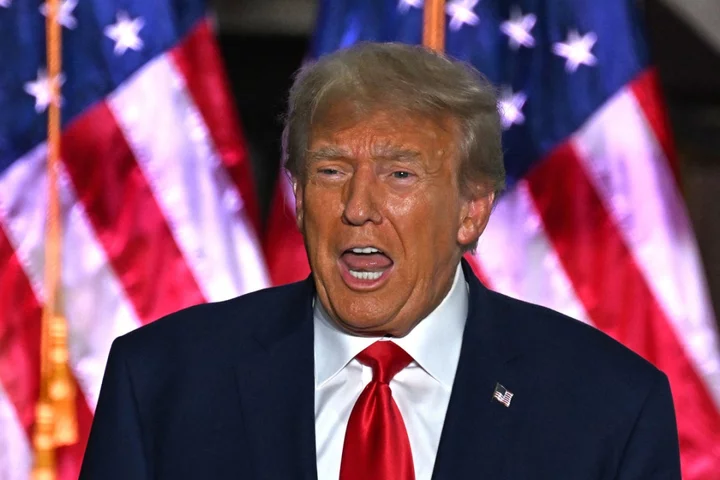
Mystery Mar-a-Lago employee referenced in superseding Trump indictment is identified
The unnamed “Trump employee 4” mentioned in the superseding federal indictment against former President Donald Trump has been identified as Yuscil Taveras, the director of information technology at Mar-a-Lago. CNN and NBC News revealed the name on Friday. The reports said that Mr Taveras oversaw the surveillance camera footage at the property. He had a conversation with the third co-defendant named in the superseding indictment – Carlos De Oliveira – who was a maintenance supervisor at Mar-a-Lago. He suggested their chat “remain between the two of them,” the indictment states. Mr De Oliveira asked to have a private discussion in an “audio closet.” Mr De Oliveira then asked how long the server retained footage, to which Mr Taveras responded that he believed it was approximately 45 days. Mr De Oliveira then said “the boss” wanted the footage deleted. But Mr Taveras said that not only did he not know how to do that but “that he did not believe that he would have the rights to do that,” the filing states, adding that Mr De Oliveira would have to reach out to the supervisor of security. Reiterating the wishes of “the boss,” Mr De Oliveira then asked, “what are we going to do?” CNN reported that special counsel Jack Smith’s team had previously heard testimony about “odd conversations” about surveillance footage between Mr Taveras, and two other co-defendants, Carlos De Oliveira and another employee, Walt Nauta. Thursday’s superseding indictment added more charges to the existing pile against Mr Trump. His 2024 presidential campaign dismissed the charges in a statement, calling them “nothing more than a continued desperate and flailing attempt by the Biden Crime Family and their Department of Justice to harass President Trump and those around him.” On Friday morning, the former president said in a radio interview that regardless of whether he is convicted or incarcerated, he would continue to run for president. Read More Trump indictment – live: Trump vows to continue 2024 run in jail as new charges added to classified docs case The latest charges against Trump answer one question and raise several more Trump slams Jack Smith’s superseding indictment in classified docs case as ‘election interference’
2023-07-29 05:58
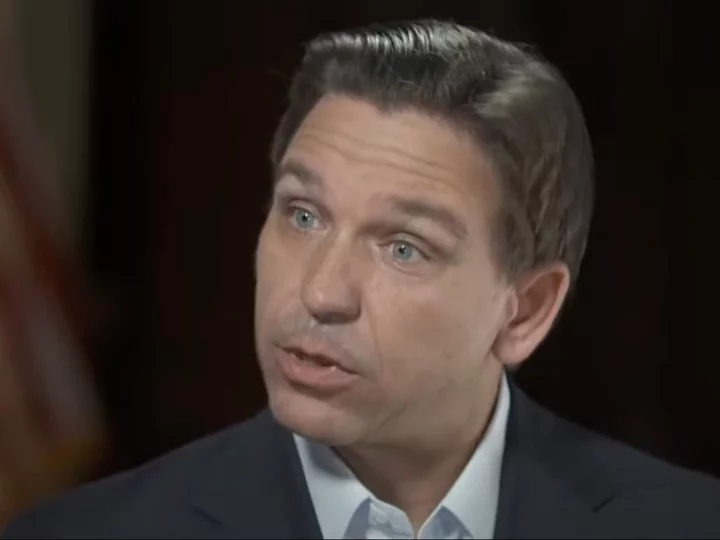
DeSantis cornered on his Bud Light boycott after threatening legal action over stock drop
Ron DeSantis threatened Bud Light’s parent company with legal action after the beer brand’s sales and stocks dropped because of right-wing backlash and transphobic boycotts over a transgender influencer’s sponsored social media post – a boycott that the Florida governor supported. Mr DeSantis, who is seeking the 2024 Republican nomination for president, defended the boycott in a lengthy, wide-ranging interview with Megyn Kelly on SiriusXM after outlining the potential impacts of poor sales and stock prices on the state’s pension fund, which holds stock in Anheuser-Busch and InBev. The right-wing news personality asked whether Mr DeSantis was “using government to punish citizens for political wrongthink,” an accusation often thrown at Democratic officials by conservatives. “No. Take Anheuser-Busch. We’re not punishing them. They departed from business practices by indulging in social activism. That has caused a huge problem for their company, and their stock price has gone down,” Mr DeSantis said. “Well, our pension fund in Florida holds Anheuser-Busch/InBev stock. So it’s actually hurt teachers, it’s hurt cops, it hurts firefighters who depend on that pension fund, and so –.” “Didn’t you support the boycott against them?” Ms Kelly interjected. “No, I did, but that’s just as a personal thing, but I mean we didn’t have, like, the state government, you know, necessarily, you know, putting power about it, but as an American I said I’m not doing Anheuser-Busch, I’m not doing Bud Light.” In a recent letter to a state agency that manages retirement accounts for state workers, Mr DeSantis suggested that InBev “breached legal duties to its shareholders” by associating with “radical social ideologies” after trans influencer Dylan Mulvaney posted a video to her Instagram account with a Bud Light can in May. The video sparked widespread outrage among Republican officials and right-wing personalities who have filmed themselves dumping out beers, shooting bottles and cans, and pledging to boycott Budweiser products because a trans person was featured in marketing. “All options are on the table,” Mr DeSantis wrote in his letter, though it’s unclear what the state can do to challenge the multinational company’s business decisions. “When you take your eye off the ball like that, you’re not following your fiduciary duty to do the best you can for your shareholders, so we’re going to be launching an inquiry about Bud Light and InBev, and it could be something that leads to a derivative lawsuit on behalf of the shareholders of the Florida pension fund,” Mr DeSantis told Fox News host Jesse Watters on 20 July. Ms Kelly also pressed the governor on his administration’s actions against the Walt Disney Company and its sprawling theme park campus in the state. The company and the DeSantis administration are suing one another following a feud over Disney’s opposition to what opponents have called Florida’s “Don’t Say Gay” law that boiled over into political and legal battles that could shape the company’s business in the state. The governor has overseen what is effectively a state takeover of the municipal board that managed Disney’s park campus for decades, a move that the company has called a “targeted campaign of government retaliation”. “Why can’t Disney oppose your law … without being punished by the state?” Ms Kelly asked the governor. Mr DeSantis accused the company of “weaponising” state subsidies to speak out against state policy. The Reedy Creek Improvement District was first created in 1967 to give Disney control of its land use, zoning rules and public services without putting a tax burden on Florida residents. “It’s not about entitlement,” Ms Kelly said. “If I go to my boss and I say, ‘You sexually harassed me,’ and then suddenly he reduces my salary from $200k to $100k, that’s retaliation.” Mr DeSantis dismissed the comparison. He accused Disney of supporting “sexualising kids” and putting its “corporate weight” behind that effort, as his administration and national agenda launches a crusade against inclusive classroom instruction and honest discussion of gender, sexuality, race and racism, as well as a series of policies that threaten LGBT+ people and gender-affirming healthcare for both transgender minors and trans adults. A motion filed in US District Court on 26 June argues that Mr DeSantis is entitled to “legislative immunity” that shields the actions of the governor and lawmakers in “the proposal, formulation, and passage of legislation.” Attorneys for Mr DeSantis argue that the governor and the secretary of Florida’s Department of Economic Opportunity are both “immune” from the suit. In filings this week, attorneys for the company argued that the governor is trying to evade responsibility for overseeing laws that “punish residents for political statements violating a state-prescribed speech code”. Read More Tim Scott rebukes DeSantis for new Florida Black history curriculum Republican congressman faces wrath of DeSantis campaign with call to ‘correct’ Black history standards DeSantis v Disney: Why Florida’s governor is at war with the Mouse
2023-07-29 05:46
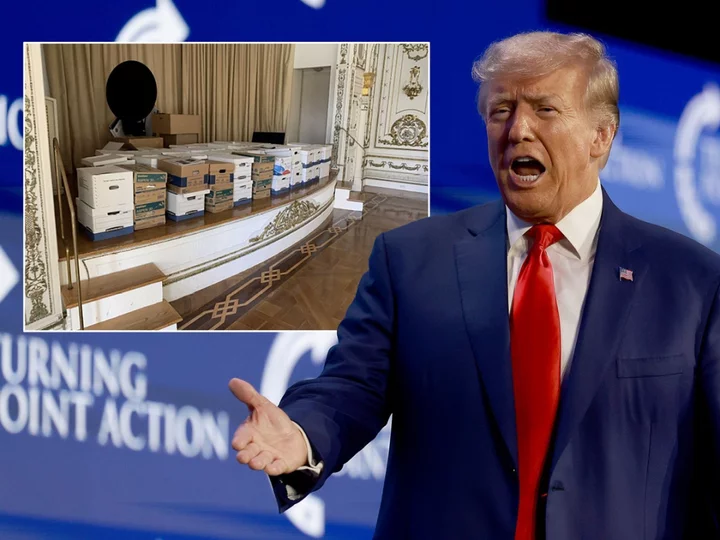
Trump indictment – live: Trump vows to continue 2024 run in jail as new charges added to classified docs case
Donald Trump has vowed to continue his 2024 presidential run from prison if necessary after the Mar-a-Lago boxes case became subject to a superseding indictment late on Thursday. The former president and aide Walt Nauta were hit with anew set of federal charges related to alleged mishandling of classified information after leaving the White House. Federal prosecutors accuse him of retaining defence information and conspiring with club employee Carlos De Oliveira to delete security footage to hide evidence of misconduct. On Friday morning, radio host John Fredericks asked Mr Trump if conviction and sentencing in one of the cases against him would stop his White House campaign. The former president assured him that he would continue to run, even while incarcerated, adding that there is nothing in the Constitution to stop him. Meanwhile, a separate federal grand jury is considering indicting Mr Trump on charges over the January 6 Capitol riot and his efforts to overturn the 2020 presidential election. Last week, Mr Trump received a letter from special counsel Jack Smith’s office saying he is the target of their investigation. The former president’s legal team met with prosecutors on Thursday morning in preparation for the expected indictment. Read More Trump hit with more charges as Mar-a-Lago worker added to documents case Iran war plans, deleting security footage, a third defendant: Key takeaways from new Trump documents charges Carlos De Oliveira: Who is second Trump aide now charged in Mar-a-Lago secret documents case
2023-07-29 03:50

Alicia Navarro tells investigators ‘nobody hurt me’ in mysterious reappearance as police deny arrest rumours
A missing Arizona teenager who mysteriously turned up at a Montana police station four years after her disappearance has told police that she was not harmed, according to a video released by police. Alicia Navarro, 18, stunned officers in the small town of Havre, 40 miles from the Canadian border, when she showed up alone on Sunday and identified herself as a missing teenager from the Phoenix suburb of Glendale. Nearly a week on from her reappearance, very little is known about where the teenager has been, or if any suspects have been identified. In a newly released video interview, a Glendale detective asks Ms Navarro: “Did anybody hurt you in any way?” “No, no one hurt me,” she replied. The detective then asks: “OK, because our goal is we just want to make sure that you’re safe.” “I don’t, I don’t, ummm... I understand that,” she responds. In a separate video, Ms Navarro thanks police. “Thank you for offering help to me,” she says. Ms Navarro disappeared from her Glendale home in September 2019 at the age of 14, sparking a vast search operation involving police, the FBI and the Center for Missing and Exploited Children. Her mother Jessica Nuñez has previously said the teenager was on the autism spectrum, which made her shy in some social situations, and that she had left a note in her bedroom saying she had run away. “I will be back. I swear. I’m sorry,” she wrote in a note days before her 15th birthday, before taking her laptop and phone and hopping over a backyard fence. A private investigator hired by the family told the New York Post Ms Navarro had only spoken briefly to her mother. Trent Steel told the Post the family was thrilled she had been found safe, but that the teenager had “not made her intentions clear”. Glendale police Lt Scott Waite said this week that investigators were looking into all possible explanations for her disappearance, including kidnapping. Mr Waite described the teenager’s reunion with her mother as “emotionally overwhelming”. Ms Navarro reportedly apologised for “what she has put her mother through.” Ms Nuñez previously told 12News that she believed her daughter had been lured away by a predator. In a video posted to her Facebook account on Wednesday, Ms Nuñez told her thousands of followers: “I want to give glory to God for answering prayers and for this miracle.” In a statement released on Friday through the Anti-Predator Project, her family thanked law enforcement, activists and the media. “It is a blessing that after being missing for so long Alicia can come back home,” the statement reads. “If there is anything that Alicia’s story has taught us is that you can never give up hope.” According to the Associated Press, a man living in an apartment a few blocks from the Havre police station was arrested on Wednesday night. Witnesses told the AP that 10 heavily armed uniformed and undercover officers arrived at the address at about 8pm and took a suspect away in handcuffs. On Friday, Glendale police denied that there have been any arrests in connection with Ms Navarro’s disappearance. Read More Mystery as teenager walks into Montana police precinct four years after she went missing in Arizona Mother says daughter’s return after four years brings hope to all parents of missing children
2023-07-29 02:46
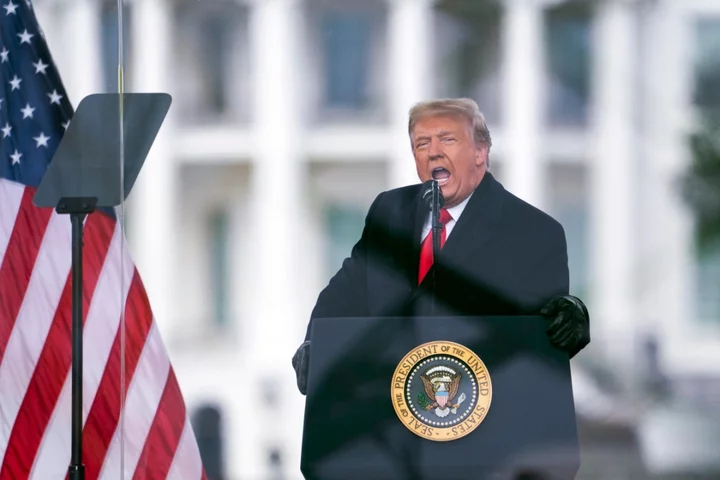
Trump has one-in-three chance of facing judge he appointed in special counsel indictment
Donald Trump is widely expected to be indicted imminently by Justice Department special counsel Jack Smith over his efforts to overturn the 2020 US presidential election result and his role in inciting the Capitol riot of 6 January 2021. Should that happen and he is brought to trial in Washington DC, Mr Trump would appear before a judge selected at random to oversee the case in accordance with the local rules. However, since he was the 45th president of the United States, Mr Trump stands a one-in-three chance of coming up against a jurist he personally appointed. Four of the 12 district judges currently active in DC – Judges Timothy Kelly, Trevor McFadden, Dabney Friedrich and Carl Nichols – were elevated to their current positions during the Republican’s four years in the White House between 2017 and 2021, meaning, at least at that point, he believed them to be politically sympathetic to his own values. Both Judge McFadden and Judge Nichols have raised eyebrows since then through their handling of January 6 defendants, the former delivering the only acquittal in a bench trial resulting from the failed insurrection and attempting to waive grand jury secrecy in court and the latter finding himself in disagreement with no fewer than 10 of his peers when he ruled that the Justice Department could not charge the accused rioters with obstruction of an official. The remaining eight active justices were appointed by either Barack Obama or Joe Biden, which, following the same logic, suggests they are likely to have more Democratic leanings. The ranks of DC’s senior judges, meanwhile, include veterans appointed during the Ronald Reagan, Bill Clinton and George W Bush administrations, two of whom – Emmet Sullivan and Amy Berman Jackson – have a recent track record of making enemies of Trumpworld luminaries. Judge Sullivan told Mr Trump’s short-lived first national security adviser Michael Flynn in 2018 that might have been charged with “treason” over his undeclared lobbying on behalf of the Turkish government, drawing the ire of the MAGA movement, while Judge Jackson attracted headlines when she issued a gag order against self-styled Republican political fixer Roger Stone after he posted a picture of her on Instagram with a rifle’s crosshairs zeroing in on her forehead. As for DC’s juror pool, citizens of the nation’s capital have distinguished themselves in recent years through their careful and considered handling of January 6 cases, despite voting overwhelmingly for Mr Biden at the ballot box and witnessing the violence of that ignominious day first-hand on their own doorsteps. For all that, Brandon Van Grack, a former federal prosecutor who worked on special counsel Robert Mueller’s investigation into Mr Trump’s alleged ties to Russian election meddling in 2016, argues that too much emphasis is placed on a justice’s supposed political affiliations, especially among the conspiracy-minded. “There are so many exceptions to it,” he told The Messenger. “I think it’s just too much shorthand for people who don’t know the court and who don’t know the judges.” Read More Trump news – live: Trump and aides charged with plotting to delete security footage in classified docs case Trump slams Jack Smith’s superseding indictment in classified docs case as ‘election interference’ Trump’s election fraud claims were always bogus. Will his history of lies finally catch up to him? What is an indictment? Donald Trump facing third of 2023 over Capitol riot Trump says he’ll run for president from jail if convicted on any indictments Trump calls additional charges in Jack Smith’s superseding indictment ‘harassment’
2023-07-29 01:26

No clarity about who's in charge in Niger, 2 days after mutinous soldiers ousted the president
Two days after mutinous soldiers ousted Niger’s democratically elected president, it was still unclear Friday morning who was running the country and what mediation efforts were underway, as analysts warned that political chaos could set back the fight on extremist groups and increase Russia's influence in the region. On Thursday, several hundred people gathered in the capital, Niamey, and chanted support for the Russian private military group Wagner while waving Russian flags. Later, they burned cars and ransacked the headquarters of the president's political party. “We’re fed up,” said Omar Issaka, one of the protestors. “We are tired of being targeted by the men in the bush ... Down with the French people. We’re going to collaborate with Russia now,” he said. The soldiers have not announced a leader and President Mohamed Bazoum, who was elected two years ago in Niger’s first peaceful, democratic transfer of power since its independence from France in 1960, has not resigned. Some of the last public communications from the government included a defiant tweet by the president Thursday declaring that democracy would prevail and a call by the Foreign Minister Hassoumi Massoudou, on media outlet France 24, for Nigeriens to stand against the mutiny. Someone close to the president who is not authorized to speak about the situation, told The Associated Press that Bazoum has no intention of resigning and talks were ongoing. However, it's unclear who's involved in these dialogues, the nature of the discussions or how they're proceeding. Analysts say the coup could destabilize the country and threatens to starkly reshape the international community’s engagement with the Sahel region. Bazoum is a key ally in the West’s efforts to battle the jihadists, and the West African nation has been seen as the last major Western partner standing against extremism in a region where anti-French sentiment has paved the way for the Russian private military group Wagner. Neighboring Mali and Burkina Faso have both ousted the French military, which previously provided aid in their fight against jihadists. Mali has contracted Wagner, and it’s believed the mercenaries will soon be in Burkina Faso. Earlier this week, The Economic Community of West African States said it was sending Benin President Patrice Talon to lead mediation efforts, but as of Friday Talon was not in the country. During their first address to the nation Wednesday night, the mutineers urged “external partners” not to interfere. French Foreign Minister Catherine Colonna told French media Friday that President Emmanuel Macron has spoken several times to Bazoum. Colonna said France believes there are still possible exits from the crisis, and that Paris regards the attempted coup as lacking any legitimacy. On Thursday, U.S. Vice President Kamala Harris, said the country's “substantial cooperation with the Government of Niger is contingent on Niger’s continued commitment to democratic standards". Niger could lose millions of dollars in military aid and assistance, which the United States and European countries have recently poured in an attempt to help in the fight against Islamic extremism. The United States in early 2021 said it had provided Niger with more than $500 million in military assistance and training programs since 2012, one of the largest such support programs in sub-Saharan Africa. The European Union earlier this year launched a 27 million-euro ($30 million) military training mission in Niger. The United States has more than 1,000 service personnel in the country. France has 1,500 soldiers, which conduct joint operations with the Nigeriens. The coup has dashed hopes of collaboration between Sahelian countries and Western powers, which offered a more robust response to the jihadist insurrection when compared with the strategies to arm civilians in Burkina Faso or the responsibility given to Wagner in Mali, said Ibrahim Yahaya Ibrahim, senior Sahel analyst for the International Crisis Group. As uncertainty lingers about who's in charge, insecurity could worsen. “The army officers will be busy positioning themselves in power struggles and abandon the fight against jihadists,” said Ulf Laessing, head of the Sahel program at the Konrad Adenauer Foundation. Rights groups also warn that civilians always bear the brunt of these mutinies. “During a coup, the first victims are always the same: the most vulnerable, women and children,” said Drissa Traore, secretary-general of the International Federation for Human Rights. On Thursday the United Nations Office for the Coordination of Humanitarian Affairs said it has paused operations in Niger, where more than 370,000 people are internally displaced and more than 4 million rely on aid. ___ AP writer John Leicester in Paris contributed to this report. Read More Ukraine war’s heaviest fight rages in east - follow live Charity boss speaks out over ‘traumatic’ encounter with royal aide Stock market today: Asian shares mixed, Tokyo falls as Bank of Japan adjusts bond purchase policy India and Japan look to collaborate in building semiconductors and resilient supply chains AP Week in Pictures: Europe and Africa
2023-07-28 15:51

Jimmy Hoffa disappearance anniversary: What happened to long-lost union leader presumed murdered by the mob?
Jimmy Hoffa, the legendary American union organiser, disappeared from a parking lot outside of the Machus Red Fox restaurant in Bloomfield Township, Detroit, 48 years ago on Saturday 30 July 1975. Presumed dead since the same date in 1982, his body has never been found, no one has ever been charged and the case remains unsolved. Hoffa, 62, was last heard from at around 2.15pm that afternoon, calling his wife at their home in Lake Orion and a friend, Louis Linteau, at his office from a public payphone, griping that the two gentlemen he was supposed to be meeting for lunch had failed to show up. He was subsequently spotted talking to several other men nearby before being driven away in a maroon car that one eyewitness, a truck driver, told investigators could have been a Lincoln or maybe a Mercury Marquis. It might as well have been a hearse, for all the difference it made, for James Riddle Hoffa would never be seen again. His own vehicle, a green Pontiac Grand Ville, stood abandoned at the scene, just where he had left it. Long assumed to have been the victim of a mob hit, the visionary general president of the International Brotherhood of Teamsters (IBT) – who dramatically expanded the union’s reach, influence and coffers between 1957 and 1971, before being brought down by scandal – certainly had more than his fair share of powerful enemies and shady associates. Hoffa’s story – or, at least, versions of it – has frequently been told over the past half-century, often fictionalised through characters loosely based upon him in movies like Sergio Leone’s Once Upon a Time in America (1984) or more directly in Danny DeVito’s biopic Hoffa (1992) starring Jack Nicholson, James Ellroy’s Underworld USA novel sequence or Martin Scorcese’s recent The Irishman (2019) in which Al Pacino played the doomed labour leader. But none of those projects have come close to cracking one of the most enduring true crime mysteries in the history of American public life. What really happened to Jimmy Hoffa? Now that is a riddle. Born on Valentine’s Day 1913 in Brazil, Indiana, Hoffa’s Pennsylvania Dutch father John was a coal miner who passed away from lung disease in 1920 when his son was just seven years old, prompting the family to relocate to Detroit, Michigan, soon to become the epicentre of the mighty American auto industry. Realising he would need to grow up fast to support his mother, Hoffa left school at 14 to work as a stock boy for a grocery chain, where he soon took exception to the inadequate wages he received, the perilous terms of his employment and the inequality he saw all around him, which would only worsen in the aftermath of the Wall Street Crash of 1929 with the coming of the Great Depression. Having learned to stand up for himself against workplace injustice, Hoffa quit in 1932 to work as a professional organiser with the Local 299 chapter of the Teamsters union, representing Detroit’s truck drivers and warehouse operatives. As the organisation grew over the course of a combative decade, consolidating its power first locally, then regionally and finally nationally, Hoffa met the Polish girl who would become his wife, Josephine Poszywak, during a strike undertaken by non-unionised laundry workers in early 1937. They married that September. Hoffa’s growing reputation and networking smarts saw him named chairman of the Central States Drivers Council in 1940, president of the Michigan Conference of Teamsters in 1942 and then president of Local 299 by 1946, all without moving so much as a single truck himself. As a labour stalwart, Hoffa secured a draft deferment when the United States entered the Second World War by successfully arguing he would be of far greater service to his country organising industry at home than he might be deployed as a grunt abroad. That also meant he was well positioned to reap the spoils of the American economic boom of the Truman years. By 1952, he was appointed international vice president of the IBT, serving as deputy to Dave Beck, who was himself succeeding Daniel Tobin, who had led the union since way back in 1907. The IBT relocated its headquarters from Indianapolis to Washington, DC, three years later in order to be better placed to lobby Congress for its interests. It had never been more powerful. Then, in 1957, Beck was indicted, convicted and jailed on fraud charges after being hauled before John McClellan’s Senate Select Committee on Improper Activities in the Labour or Management Field. Hoffa was voted in as his successor as general president at the IBT’s convention in Miami Beach, Florida, that October. However, Hoffa’s profile within the labour movement had inevitably increased his exposure to organised crime and he had been arrested earlier that year for allegedly attempting to bribe a McClellan Committee aide, prompting the AFL-CIO to expel the Teamsters from its ranks in passionate opposition to his appointment. The air of notoriety surrounding Hoffa caught the attention of mob-busting US attorney general Robert F Kennedy during his brother’s presidency in the early 1960s and would see much of the organiser’s energies eaten up by legal scraps for much of that decade. He was indicted for jury tampering in Tennessee in May 1963 after again being accused of attempted bribery and was convicted the following March, sentenced to eight years in prison and a $10,000 fine. Four months later, while out on bail for the first offence, he was convicted at a second trial in Chicago, Illinois, on one count of conspiracy and three of mail and wire fraud for improper use of the Teamsters’ pension fund. This time he was sentenced to five years behind bars. After spending three years unsuccessfully appealing those convictions – while simultaneously expanding the union and bringing almost all on-road North American truck drivers together under one National Master Freight Agreement – Hoffa was sent to Lewisburg Federal Penitentiary in Pennsylvania on 7 March 1967 to serve a 13-year aggregate sentence. Despite the disgrace, he refused to resign and went on operating as IBT boss from Lewisburg, remaining in the role until 19 June 1971, when he was replaced by Frank Fitzsimmons, with whom he had a long association dating back to their Detroit days. Hoffa was released from prison on 23 December that year, having served fewer than five of his 13 years after Richard Nixon commuted his sentence on the condition that he refrain from engaging in union activity until 6 March 1980, a stipulation he was bitterly opposed to and battled in court in the hope of being able to wrestle back the Teamster’s presidency, unmoved to consider retirement by the generous pension settlement the organisation had handed him. The Mafia were among those opposed to his comeback ambitions, and one of their enforcers was Anthony “Tony Pro” Provenzano, a capo in New York City’s Genovese crime family with whom Hoffa had once been close but seemingly fallen out with while both men were incarcerated at Lewisburg. Provenzano is one of the men Hoffa is supposed to have been dining with at the Machus Red Fox on the day he vanished. The other was Anthony “Tony Jack” Giacalone, a local heavy who may have been dispatched as a mediator to oversee Hoffa’s appeal for support to Provenzano. Neither would admit to having seen the labour veteran in Bloomfield Township that day and both seemingly had credible alibis. What is known is that the car in which Hoffa is most likely to have been spirited away – a 1975 Mercury Marquis Brougham, after all – belonged to Giacalone’s son Joseph, who had lent it to one Charles “Chuckie” O’Brien, a Hoffa family friend. O’Brien may have been engaged to collect the old man in order to encourage a false sense of security. His fingerprints would later be found on a 7-Up bottle in Hoffa’s Pontiac, although he continued to deny any involvement until his death in 2020. When investigators examined the Mercury on 21 August, police dogs positively identified Hoffa’s scent in its upholstery, strongly suggesting he had ridden in it at least once. Later, in 2001, the advance of DNA technology enabled officers to locate a strand of his hair in the same car, although, again, that was not sufficient to trace it to a specific date. After years of federal investigation had resulted in 16,000 pages of documents spread over 70 volumes but no outcome, leaving Hoffa’s wife Josephine to pass away in 1980 without answers, the FBI’s opinion on what had happened would be outlined by Arthur Sloane in his book Hoffa (1991). In it, Sloane suggested the official verdict was that Northeastern Pennsylvania mob boss Russell Bufalino had ordered the hit and dispatched Thomas Andretta and the brothers Salvatore “Sally Bugs” and Gabriel Briguglio, alongside O’Brien, to carry it out. The quartet then either killed Hoffa inside the vehicle or drove him on to an unspecified location and executed him there, perhaps cremating his body to prevent its rediscovery. That broad outline was effectively confirmed on 16 June 2006 when The Detroit Free Press published the entire 56-page “Hoffex Memo”, an FBI dossier dating from January 1976 in which the bureau expressed its suspicions in writing, arguing the gangsters were concerned that a reinstated Hoffa might interfere with their control of the Teamster’s pension fund or even be persuaded to testify against them. There are numerous quibbles with that theory, however. Experts often argue that Hoffa was too high-profile a target for the mob to assassinate in such a public manner and that his hopes of returning to the leadership of the union amounted to little more than a pipedream by 1975, his name too tarnished to represent a serious threat. According to Sloane, former US prosecuting attorney Keith Corbett also believed that O’Brien was too unreliable to have played a part and that Vito “Billy” Giacalone, the younger brother of Tony Jack, was more likely to have been the fourth man. A completely fresh theory appeared in 2004 with the publication of Charles Brandt’s book I Heard You Paint Houses, the basis for Scorsese’s The Irishman, in which the author argues that hitman Frank Sheeran did the deed in an empty house in Detroit after Hoffa had been delivered into his clutches, the subject having confessed as much in old age. Bloodstains found on floorboards at the scene did not match Hoffa’s DNA, however, and it is often thought unlikely, as was the case with O’Brien, that an outsider might be trusted with such a delicate assignment by the notoriously tribal Italian-American syndicate. Another infamous mob killer, Richard “The Iceman” Kuklinski, claimed in his own 2006 memoir that he was responsible, having been paid the princely sum of $40,000 to whack Hoffa. Kuklinski claimed he drove the body to a New Jersey junkyard, sealed it inside a 50-gallon oil drum and set it on fire, later digging up the charred cadaver and placing it in the trunk of a car that was duly sold for scrap metal. That has likewise never been substantiated. As to the final resting place of Hoffa’s remains, multiple sites have been inspected over the decades without yielding a result, from the now-demolished Giants Stadium in East Rutherford (a tip-off hitman Donald “Tony the Greek” Frankos offered in a 1989 Playboy interview) to a landfill beneath the Pulaski Skyway in Jersey City and even the Renaissance Building in downtown Detroit, now the 73-storey home of General Motors. A farmer’s field, a swimming pool and a suburban driveway in Michigan have all been proposed and discarded while the wildest speculations imagine the missing man tossed from a plane by corrupt federal marshals into the Great Lakes (a theory courtesy of Hoffa bodyguard Joseph Franco, who had a book to sell) or ground up and disposed of in one of the quieter swamps of the Florida Everglades, an idea pitched to the Senate by self-described murderer Charles Allen in 1982. Sadly, we may never know the truth about how Jimmy Hoffa, at one time one of the most famous faces in America, came to vanish into thin air, blown away on the breeze like an old parking ticket, never to be seen again. Read More FBI say no sign of Jimmy Hoffa’s body under New Jersey bridge Events in the disappearance of former Teamsters head Jimmy Hoffa From serious to scurrilous, some of the many Jimmy Hoffa theories
2023-07-28 15:18
